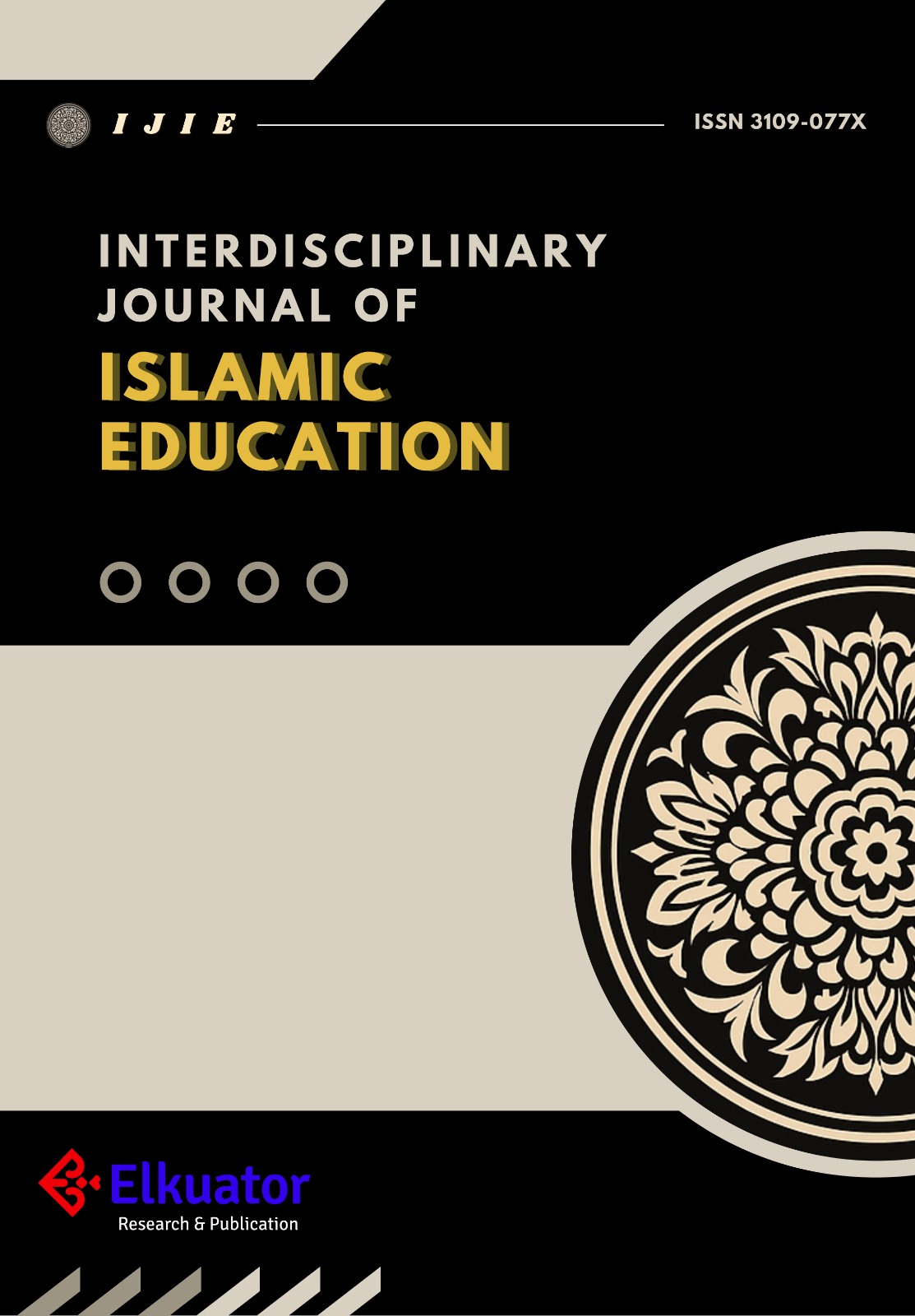Islamic Education Management and Its Post-Pandemic Shifts: A Systematic Literature Review
DOI:
https://doi.org/10.24260/ijie.1.1.55Keywords:
Islamic education management, COVID-19 pandemic, innovation, transformation, curriculumAbstract
The COVID-19 pandemic has triggered profound transformations in the management of Islamic education, compelling educational institutions to swiftly adapt to new technologies and adopt innovative strategies. This study aims to analyse the strategic shifts and innovations that have emerged in the management of Islamic education in the post-pandemic era and to formulate recommendations for strengthening institutional capacities to meet contemporary challenges. Utilising a Systematic Literature Review (SLR) approach, the study applies an initial mapping framework based on PICO (Population, Intervention, Comparison, Outcome). The review encompasses scholarly publications from 2020 to 2024, with a focus on managerial changes and innovations related to technology integration, leadership practices, curriculum design, and evaluation systems. The findings reveal a paradigmatic shift toward more anticipatory and adaptive management models, increased technological integration across all aspects of educational administration, decentralisation of decision-making processes, and the emergence of more flexible leadership and curricular models. A systematic evaluation of current management practices indicates the urgent need for a holistic approach to effectively respond to these challenges. The managerial transformation observed holds significant potential for building a more resilient and adaptive Islamic education system by bridging traditional values with modern demands. The study's implications include the enhancement of human resource capacities, the redesign of curricula, and increased investment in digital infrastructure. This research makes a meaningful contribution to the interdisciplinary discourse on Islamic education by introducing a holistic framework for managing change in the post-pandemic era.
References
Adedoyın, O. B., & Soykan, E. (2020). Covid-19 Pandemic and Online Learning: The Challenges and Opportunities. Interactive Learning Environments. https://doi.org/10.1080/10494820.2020.1813180
Archer, D., & Cameron, A. (2013). Collaborative leadership: Building relationships, handling conflict, sharing control (2nd ed). Routledge.
Asep Awaluddin & Samsudin. (2021). Pemanfaatan aplikasi whatsapp dalam pembelajaran pendidikan agama Islam di era pandemi covid-19. Akademika : Jurnal Manajemen Pendidikan Islam, 3(1), 37–51. https://doi.org/10.51339/akademika.v3i1.303
Cevin, J., Gultom, D., & Hermawan, L. (2025). Digitalisasi Sistem Penjaminan Mutu Internal (SPMI) untuk Institusi Pendidikan Berbasis Website. MDP Student Conference, 4(1), 313–320. https://doi.org/10.35957/mdp-sc.v4i1.11183
Faliyandra, F. (2021). The Role of Madrasah Heads After the Covid-19 Pandemic: A Study of the Integration of Education Management and Social Intelligence from an Islamic Perspective. Dirasah : Jurnal Studi Ilmu Dan Manajemen Pendidikan Islam, 4(2), 89–103. https://doi.org/10.29062/dirasah.v4i2.317
Fitriyani, Febriyeni, M. D., & Kamsi, N. (2020). Penggunaan Aplikasi Zoom Cloud Meeting pada Proses Pembelajaran Online Sebagai Solusi di Masa Pandemi Covid 19. Edification Journal, 3(1), 23–34. https://doi.org/10.37092/ej.v3i1.221
Fridayani, J. A. (2021). Kepemimpinan adaptif dalam agilitas organisasi di era adaptasi kebiasaan baru. Modus, 33(2), 138–149. https://doi.org/10.24002/modus.v33i2.4654
Haryatmoko, J. (2020). Jalan baru kepemimpinan & pendidikan: Jawaban atas tantangan disrupsi-inovatif (Cetakan kedua). PT Gramedia Pustaka Utama.
Hasanah, M. F. (2021). Efektivitas Penggunaan Whatsapp Group (WAG) Pada Pembelajaran Jarak Jauh (PJJ) Di Masa Pandemi Covid-19. EDUTECH : Jurnal Inovasi Pendidikan Berbantuan Teknologi, 1(2), 82–87. https://doi.org/10.51878/edutech.v1i2.425
Latifah, A. (2024). Transformasi manajemen pendidikan Islam di era digital. An Najah: Jurnal Pendidikan Islam Dan Sosial Keagamaan, 3(2), 46–51.
Nurhattati, N., Rahmawati, D., Rugaiyah, R., Hamid Ripki, A. J., & Wicaksono, D. (2023). The Adaptability of School Principal and Teachers in Curriculum Design and Lesson Plan at COVID-19 Pandemic. International Journal of Evaluation and Research in Education (Ijere). https://doi.org/10.11591/ijere.v12i2.24846
Rizaldi, D. R., Doyan, A., Fatimah, Z., Zaenudin, M., & Zaini, M. (2021). Strategies to Improve Teacher Ability in Using the Madrasah E-Learning Application During the COVID-19 Pandemic. International Journal of Engineering Science and Information Technology. https://doi.org/10.52088/ijesty.v1i2.47
Rohmani, A. F., & Inayati, N. L. (2023). Evaluasi Afektif Pasca Pandemi Covid-19 Mata Pelajaran Pendidikan Agama Islam. Iseedu: Journal of Islamic Educational Thoughts and Practices, 7(1). https://doi.org/10.23917/iseedu.v7i1.23041
Sanders, J. O. (1989). Spiritual leadership (Rev. ed., trade pbk. ed). Moody Press.
Wahyuni, T., & Muslim, A. A. (2023). Pembelajaran Yang Asyik Tanpa Mengusik: Paradigma Baru dalam Pembelajaran Abad 21. Educatio, 17(2), 192–203. https://doi.org/10.29408/edc.v17i2.9471
Downloads
Published
Issue
Section
Copyright and License
Copyright (c) 2025 Elya Ulfa Khasanah, Mareta Wulandari (Author)

This work is licensed under a Creative Commons Attribution-NonCommercial 4.0 International License.













